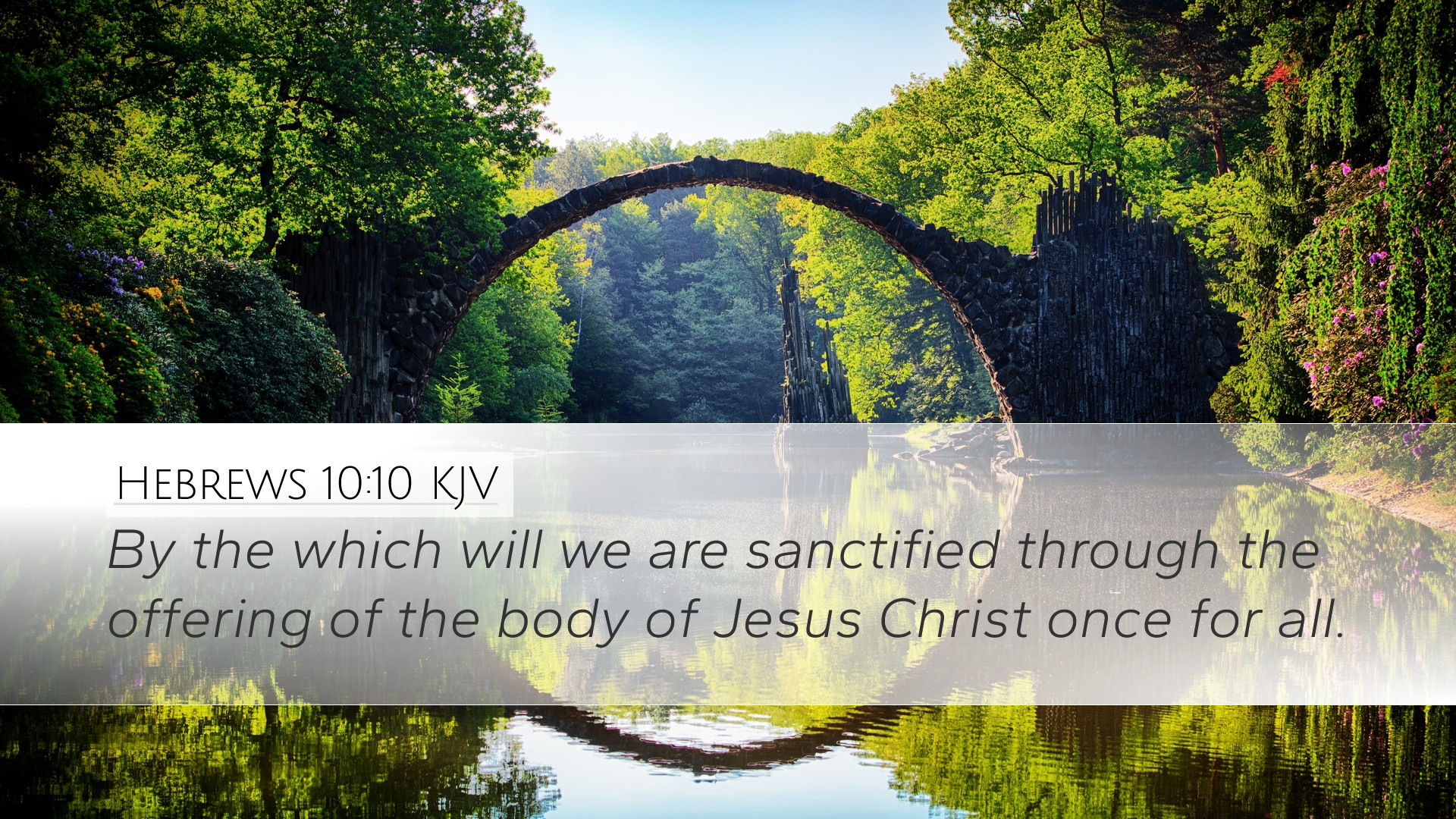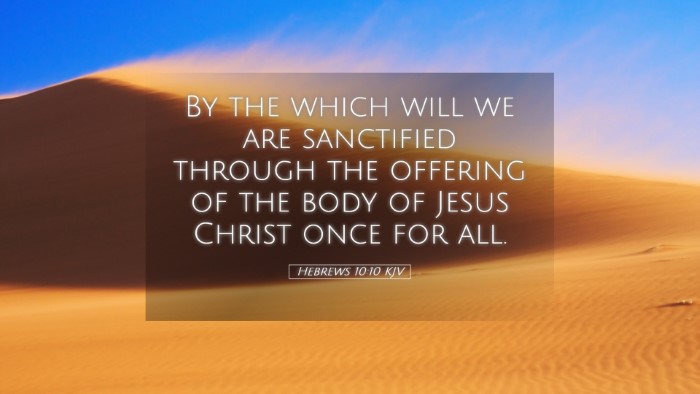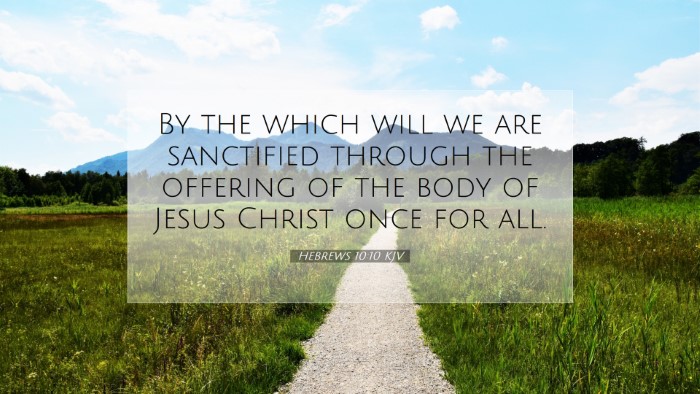Commentary on Hebrews 10:10
Hebrews 10:10 states, “By the which will we are sanctified through the offering of the body of Jesus Christ once for all.” This verse is rich in theological significance and reflects critical themes of sacrifice, sanctification, and the finality of Christ's atonement. Below are insights from various public domain commentaries that explore the depth of this passage.
Overview of the Context
The book of Hebrews presents Jesus as the ultimate fulfillment of the Old Testament sacrificial system. The author emphasizes the superiority of Christ’s sacrifice over the continual sacrifices of the Levitical priests. Understanding Hebrews 10:10 requires comprehension of the entire argument leading to this verse, particularly the themes of the Law, the priesthood, and the nature of Christ's sacrifice.
Insights from Matthew Henry
Matthew Henry articulates that the “will” referred to in this verse pertains to God's supreme purpose in the redemption of mankind. He suggests that the “offering of the body of Jesus Christ” signifies that the Saviour offered Himself as a perfect sacrifice, fulfilling the requirements of the Law and providing a means of sanctification for believers.
- Divine Will: Henry highlights that it is God's will that directs the path of redemption, pointing to the necessity of Jesus’ sacrifice.
- Sanctification: He elaborates on the work of sanctification, emphasizing that it is accomplished “once for all”, indicating its permanence and sufficiency.
- Contrasting Sacrifices: The commentary further contrasts Christ's singular sacrifice with the multitude of sacrifices made by priests prior, underscoring the complete nature of Christ's atonement.
Insights from Albert Barnes
Albert Barnes emphasizes the significance of being "sanctified" through Christ's sacrifice. He posits that sanctification entails being set apart for God’s service and denotes a transformation that is continual throughout the believer’s life. Barnes points out several key interpretations:
- Nature of Sanctification: According to Barnes, sanctification is both positional and progressive, rooted in Christ’s completed work and worked out in the believer's ongoing life.
- Once for All: Barnes stresses the implications of “once for all”, affirming that there is no need for a further sacrifice, which distinguishes Christianity from other religions relying on continual sacrifices.
- Faith's Role: He also notes the faith required to appropriate this sanctification, which positions believers not in their works but in Christ's finished work.
Insights from Adam Clarke
Adam Clarke provides an extensive analysis that examines the grammatical and contextual nuances of Hebrews 10:10. He argues for the interpretation that the phrase “by the will” refers to the sovereign plan of God, which originated before the foundation of the world.
- God's Sovereignty: Clarke underlines the sovereignty of God in salvation, affirming that the sacrificial act was preordained and not an afterthought.
- Covenant Fulfillment: He also illustrates how this verse speaks to the conclusion of the old covenant and the inauguration of the new, highlighting the shift from law to grace.
- Language of Sacrifice: Clarke delves into the original Greek terminology, providing insights into how language shapes our understanding of the sacrificial system and its fulfillment in Christ.
Theological Implications
This verse, therefore, serves as a cornerstone in Christian theology. It encapsulates key doctrines such as atonement, grace, and holiness. It reminds pastors and theologians alike of the absolute necessity of Christ's sacrifice and its implications for sanctification:
- Atonement: The completion of atonement through Christ’s sacrifice presents foundational truths for preaching and teaching.
- Grace and Holiness: Understanding sanctification invites believers to live in a manner worthy of their calling, reflecting God's holiness in their lives.
- Evangelistic Urgency: This verse compels a sense of urgency in sharing the gospel, emphasizing that Christ’s sacrifice covers all sin and is available to all who believe.
Conclusion
In conclusion, Hebrews 10:10 captures the essence of the Christian faith—Jesus Christ's sacrifice, God's divine will, and the sanctification of believers. By drawing from the insights of respected commentators such as Matthew Henry, Albert Barnes, and Adam Clarke, we deepen our understanding of this pivotal passage, equipping pastors, students, and scholars with profound truths to facilitate teaching, preaching, and personal edification.


